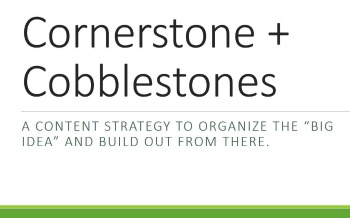It’s official: data scientists are cool. And Big Data is the hottest trend in business.
But what is Big Data and why does it matter?
A new book, Too Big to Ignore, seeks to demystify Big Data and make the case for why companies cannot afford to ignore the massive amounts of unstructured information that’s being created every second. From baseball to potholes to car insurance, the better organizations can sift through, decipher, and predict trends in our text messages, emails, videos, posts, pages, and more, the more they will be able to deliver better products and services—and hold a competitive edge in the marketplace.
Author Phil Simon notes that Big Data allows organizations to do three things:
- Better understand the past (what happened and why)
- Better understand the present (what is happening and why)
- Better understand the future (what will happen and why)
He walks through what Big Data really is (and is not), commonly used techniques for analyzing Big Data (statistical methodologies, data visualization, automation, semantics, and predictive analytics), and how companies are putting this data to use. The book also looks at a few of the data companies that are doing this work and points out that not all the models require Fortune-500-sized budgets. Finally, the book looks at both the challenges and potential of Big Data.
Writing a readable book about data isn’t easy, but Simon has done a terrific job of tackling a difficult topic with his eye on the prize. It’s not the data itself that matters, it’s what we do with it. It’s about how we can take the data and make it actionable. Or, as Simon writes, “Big Data is not a contest, and he who stores the most data doesn’t win. In a sense, Big Data is just another means toward solving business problems.” We would all do well to understand this and to start to think through how we can apply more of this analysis in our own ventures.
*Disclosure: I received a free copy of Too Big to Ignore in exchange for agreeing to review it–but without any restrictions on what I might say.



